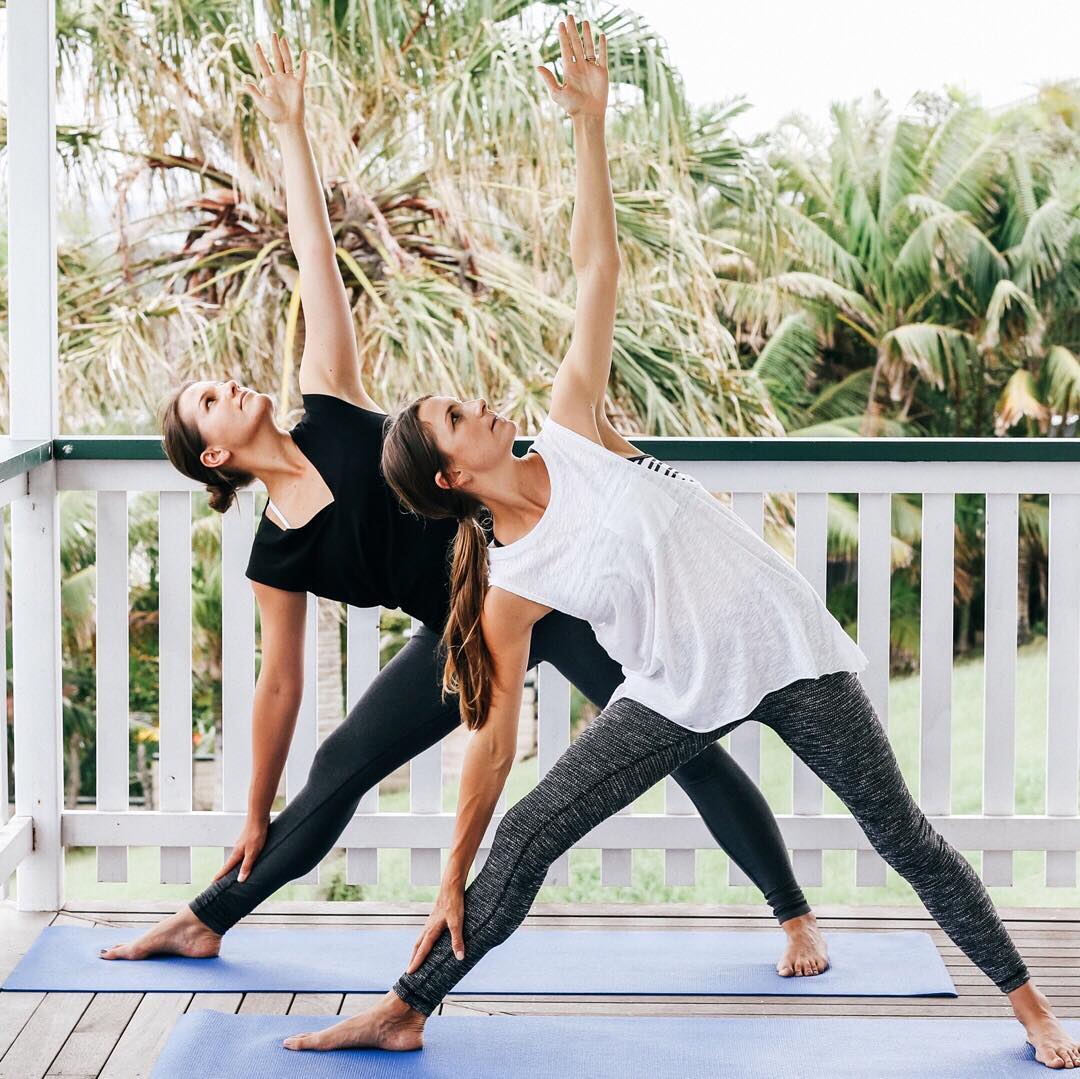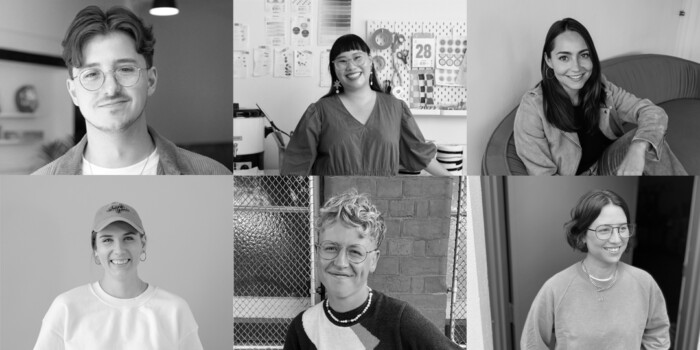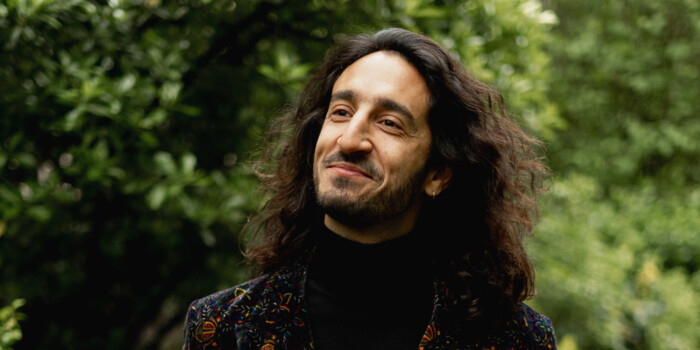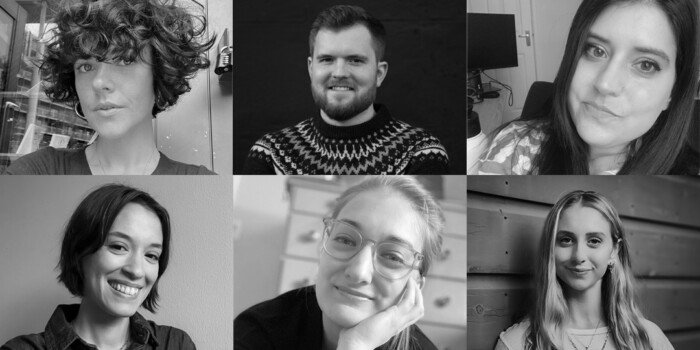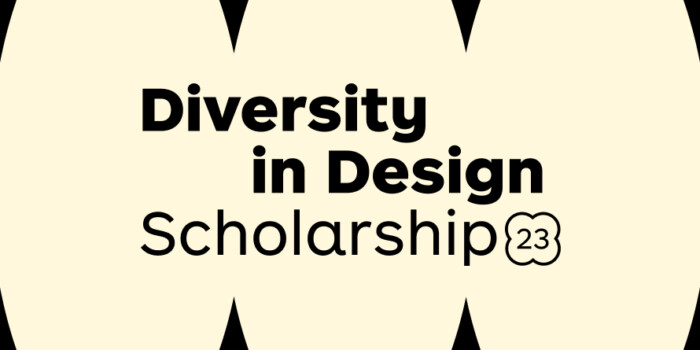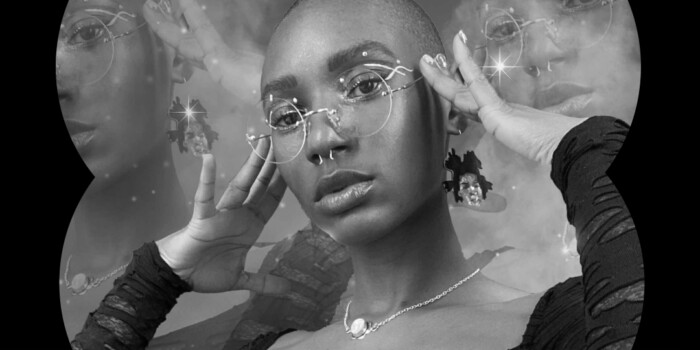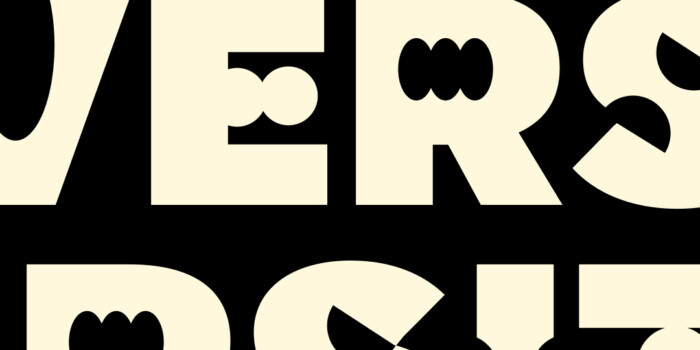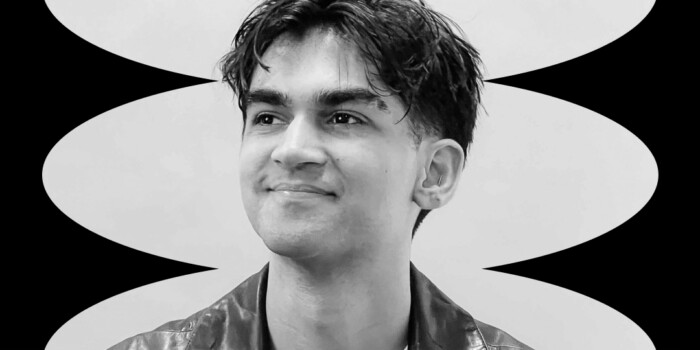Meet Johanna Scott, Shillington Graduate and Founder of Make Do Co.
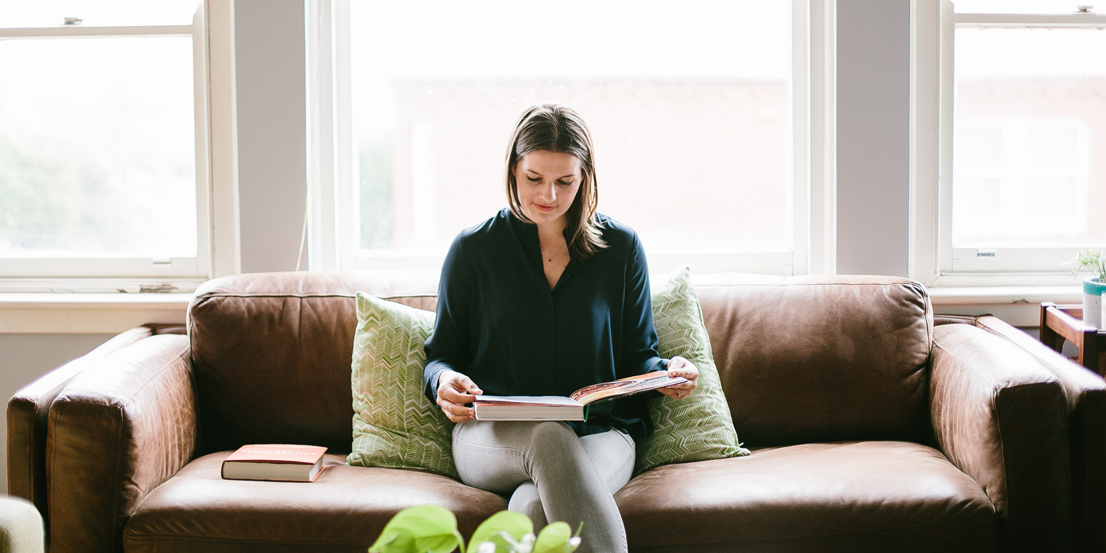 It’s amazing how our graduates carve out all sorts of unexpected and interesting careers. Part-time Shillington Sydney graduate Johanna Scott is no exception. Johanna already had a super impressive (international!) communications career, but decided to upskill at Shillington to develop new technical skills, learn design thinking and prepare to launch a brand new venture. And just over a year ago, she founded Make Do Co., which helps build businesses that matter.
It’s amazing how our graduates carve out all sorts of unexpected and interesting careers. Part-time Shillington Sydney graduate Johanna Scott is no exception. Johanna already had a super impressive (international!) communications career, but decided to upskill at Shillington to develop new technical skills, learn design thinking and prepare to launch a brand new venture. And just over a year ago, she founded Make Do Co., which helps build businesses that matter.
Read on to learn more about Make Do Co.’s mission, how Shillington taught her a new design language and her “pinch-me” moment interviewing Pentagram’s Paula Scher!
Tell us about Make Do Co. What inspired your mission to reconnect businesses to people and purpose?
Make Do Co. is young business I launched just over 12 months ago in response to a deep stirring that business and work, in many cases, aren’t helping us.
Like most people, I had good and bad experiences in the workplace and I became curious about what makes work great, and what can make it stale and unfulfilling.
I was also curious about the business world’s potential to contribute really positively to the world, instead of this idea that you can only do good or make money.
I was learning a lot about purpose and conscious awareness through yoga, meditation and other holistic practices and I thought it could be cool to bring these concepts into the workplace.
Simultaneously, really influential people around the world were sharing these ideas—reaching as far into mainstream business as Arianna Huffington and her sleep revolution and Google’s Search Inside Yourself program—and so I could see that health, wellbeing and purpose-led workplaces weren’t going anywhere. They will only continue to become more prevalent as more people experience the benefits.
Also—I had an incredible experience working for a startup in New York, Betterment, which taught me that the ways we do business have irrevocably changed. I learned so much about the lean ways in which startups must operate and could see how smart and collaborative practices could help a team achieve so much in so little time. Combine that with design thinking and great design in general, I think we now have this incredible toolkit of modern skills and frameworks to do things like they’ve never been done before.
I think there’s a real opportunity for forward-thinking leaders to combine the benefits of design and disruptive technology with the potential of a solid, values-led business—the kind of business that doesn’t cause problems in the world, but solves them, and has fun doing it in the process.
I aim to help businesses create the kinds of workplace cultures where this is possible with tailored programs and workshops, and I also work with individuals on their purpose and meaningful career path. After all, a great team is only the sum of its parts.
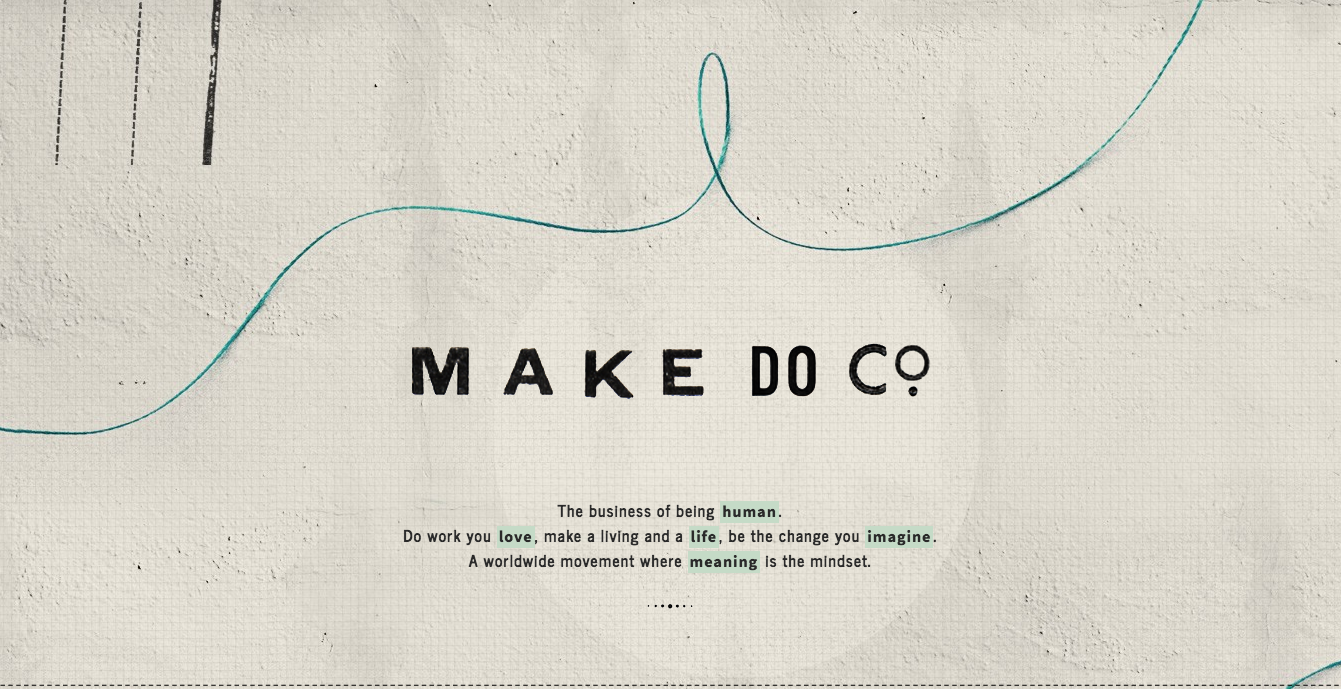 Any major highlights from your first year?
Any major highlights from your first year?
It’s hard to believe it’s only been a year! I’m keenly aware of how far there is to go—but it has been an amazing experience seeing my ideas manifested in reality.
Highlights include four sold out yoga retreats, that I hosted with my sister (Yamba Yoga Retreats); speaking at the Purpose conference in Sydney, which was hosted by the people at Wildwon, who I really admire—both as people and in the work they do; Working with entrepreneurs and business owners who genuinely want to create amazing workplaces and businesses to help other people; and a great holiday to India where I joined 20 other purpose-led entrepreneurs to talk all things Happy Startups; not to mention all the learning that has come with starting the business.
I’m a course addict and can’t seem to stop signing up to things. I studied visual communications with Shillington, permaculture with Milkwood Permaculture, various yoga teacher trainings and even a stand up comedy course at NIDA (talk about pushing the comfort levels!).
Oh—and I started up a podcast series called People of Purpose, where I get to interview my heroes and share their ideas with my community. That has been a huge highlight too.
Your podcast People of Purpose interviews some fascinating people. Who have you most enjoyed meeting with and how has it propelled your own purpose?
One of the first people I interviewed was Vince Frost from Frost* here in Sydney. He was incredibly generous with his own time and insight, and I love his views on designing your life. He then connected me to three incredible designers Paula Scher, Michael Beirut and Natasha Jen from Pentagram in New York. He could easily have ignored my little tweet asking for an interview, but he said yes, and went above and beyond. That kind of attitude is really heartening.
I have to say that interviewing Paula Scher– someone whose work I had studied at Shillington!—in the Pentagram offices, where I could see snow falling on New York cabs through the window, was a pinch-myself moment.
Nick Ritar of Milkwood Permaculture is another favourite—he is so damn smart and so inspiring! I reckon permies will save this world…
To be honest, they are all favourites. I only interview people I personally admire, so I’m biased!
How does yoga and mindfulness link in to Make Do Co.?
I began learning more about yoga and mindfulness purely out of personal interest. But as I started to consider starting my own business and what its values would be—a more human approach to business, personal purpose and positive change—I realised I didn’t need to invent anything new, but look to existing frameworks as a way of practically achieving it.
While I do teach a lot of yoga and meditation, not every workshop includes a yoga class or a meditation session, but there are many concepts we can draw on to frame the conversation.
For example, when people learn the mindful leadership approach of self-awareness, authenticity and compassion, the individuals and organisations involved flourish. Just by changing people’s understanding of themselves and others, you can transform the ways they work together and how the organisation operates.
And for businesses wanting to consider their impact on all stakeholders (not just shareholders) we can look to the permaculture ethics and principles, as well as the 8-limbs of yoga. We are often presented with the rhetoric that to be pro-business we must somehow compromise on our environmental values… This is madness. Failure to preserve our environment is risky—while a business that aligns its financial goals to a healthy and prosperous world is smart business indeed.
The great news is that permaculture provides a smart framework for meeting multiple needs simultaneously – like my need to produce a financially sustainable business and my need to create an environmentally sustainable business. It’s not necessary to prioritise one need at the expense of another, but find balance between all elements. Already you may see the connections to yoga—which in its essence is the union of all things.
What were you up to before Shillington?
After returning home to Sydney after three years living and working in New York, I started my own freelance communications business—I was doing similar work for Betterment as mentioned and prior to that had worked for various agencies in content, social media and PR.
Other than writing—which I love to do!—I felt like I’d lost a lot of the creative juice in my life. I used to sing and play piano and do drama and all sorts of things at school, and it all fell away as I got further and further into my career. I was so inspired by the work coming out of Shillington and also by the idea that I—someone with no technical design skills—could walk away from the course a fully-fledged designer. I’m still amazed by what we all achieved in that year of study!
I wanted to learn the skills to create something, get my ideas down on paper and produce something tangible.
This is at the heart of Make Do Co.—learn by doing, get better by making—so you could say that it all kicked off at Shillington!
I found the course so satisfying and challenging and I’m less afraid to learn new things coming in cold, because I’ve seen that it’s possible if you trust the process.
You studied part-time. How did you find juggling work and evening study?
I was in the lucky position of freelancing and working from home, so when I needed to devote time to Shillington I could, however my advice to anyone taking the course in the future is to be diligent from the beginning. As the workload increases, you must dedicate more time and energy and the pressure would have been easier had I done this sooner. Even if you’re exhausted and don’t think you can achieve much in the evening’s class, go! You always get more done with your teachers’ help than what you can do alone.
You get used to having class in the evenings and it just becomes part of your routine, but it helps if friends, colleagues and other people in your life understand what you’ve committed to, so they understand the pressure you’re under. I have to say the course is really well designed so it ebbs and flows in workload, but definitely take it seriously from the start. Put time away to think creatively, work on your portfolio and finesse things. The sooner you commit to this, the better your end work will be.
What skills and lessons from Shillington were most important to launching your own enterprise?
When you create something new from nothing, it can feel overwhelming at times—there always seems to be more to do and further to go until it’s “ready.” Shillington taught me great frameworks for bringing ideas into reality, ways of brainstorming and improving on concepts, as well as patience in the creative process. I’ve learned not to judge things so harshly at the start, but understand what’s working and what could be better.
Everyone should learn the art of good design and the balance of function and beauty. It just makes so much sense!
Shillington taught me a design language so I can verbalise why something works and why something else misses the mark, which is an excellent skill in communicating with clients.
I think the most important lesson was realising I still have the ability to learn. That sounds strange, but once you move into a career you know well, it’s not often you’re thrown into a situation where you know nothing and have to start again. That experience was so humbling, but also taught me how to learn again. It makes doing anything new much less daunting and far more achievable, because the unknown begins to feel familiar!
We love the brand identity of Make Do Co. What was your inspiration for the look and feel?
Make Do Co. has many meanings—making and creating, moving from passive consumer to a proactive producer, “making do” with what we have and creatively using resources, as well as capturing the sense that I don’t have a predetermined destination for this journey, but that I just wanted to get started with some ideas and see where they take me.
So the inspiration for the brand included hand drawn elements and calligraphy, graph paper and tactile stationery, architecture, recycled materials and the outdoors. I wanted it to feel handmade, human, beautiful but practical, and natural.
If you could give one piece of advice to someone starting at Shillington, what would it be?
Commit to the course from the start—make every assignment as amazing as possible so come portfolio time you already have projects you love, and can simply finesse them and grow the ideas creatively. If you come into the course with an idea—for example I wanted to create my own homemade ice cream brand—let your teacher know early on so they can tell you how it might fit into the project outline. I was able to create this brand under the packaging assignment and it was so much fun! I even made real ice cream for the shoot.
On our first night at the course, we were told to be kind to ourselves and trust the process—this was excellent advice. There were definitely a few tears throughout in portfolio time, but the process does produce great work. You just have to go easy on yourself when things aren’t working out and put your head down to create the things you imagine. It’s all possible!
Huge thanks to Johanna for sharing her Shillington story! Be sure to check out Make Do Co. and follow along on Instagram for daily updates.
Top Photograph—Shirley Cai
Yoga Photograph—Elise Hassey
Want to win some amazing prizes and stay in the loop with all things Shillington? Sign up to our newsletter to automatically go in the draw.
